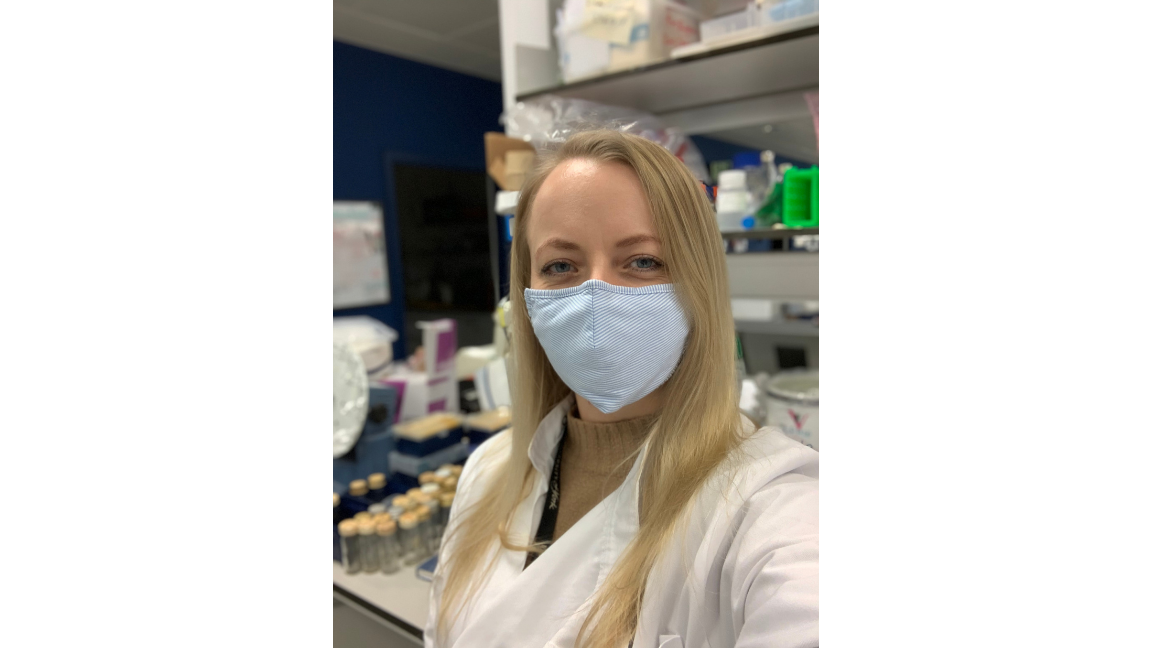Developing skills through knowledge exchange: Dr Lisa Miller
In this Q&A, Dr Lisa Miller, Associate Lecturer at the University of York, describes how the collaborative approach of our funding lead to big developments in both her project and professional skills.
Project summary: Developing a simple lateral flow assay (i.e. colour-changing strips like pregnancy tests) to detect resistance to beta-lactam drugs (such as penicillin). The test is designed to be fast and work from a patient’s urine sample – a quick tool to diagnose bacterial infections.
Collaborators: Internal: Prof. Anne-Kathrin Duhme-Klair, Prof. Gavin H. Thomas, Dr. Steven Johnson, Prof. Thomas F. Krauss. External: Dr Neil Todd, York Hospital NHS Trust
Q: How have you found working with co-development partners and what benefits has it brought to your technology? What skills have you learnt from partnering and how will these help you in future?
Having a clinical perspective has been invaluable. Our partner at York Hospital NHS Trust was able to share how many samples are processed and the pros and cons of current methodologies. Dr. Todd also provided information infection rates and this is just not available in the public domain and I wouldn’t have been able to get this information otherwise.
I was also promised access to clinical samples for testing. Unfortunately, COVID restrictions have prevented us from collecting the samples but this is something that will benefit the project in the future.
Q: Where was your career and project when Grow Medtech got involved?
I was working at a PDRA on a project aimed at developing a handheld device for profiling the susceptibility of bacterial infections. The lateral flow assay project was my side project that I worked on alongside my main project, it was in the stages of technical development and assay optimisation when we were awarded the POM award from GMT.
It has given me the opportunity to pursue my own ideas, which is huge for an early-career researcher (ECR) such as myself.
Q: How did Grow MedTech and Translate MedTech help?
Through POM funding we identified Fuse MedTech as a suitable consultancy company to carry out the work, which provided us with important insights into the market and the needs of the end users.
I also attended the Translate MedTech Regulatory Affairs for Medical Devices training session.
Our Grow MedTech Technology Innovation Manager has introduced us to the University of York Involvement@York Network Manager (Patient and Public Involvement) and connected us with a number of patient support groups. This in turn has led to a very successful PPI activity in conjunction with Bladder Health UK on Twitter, which has elicited nearly 500 replies from patients and their carers.
Through our project development being advertised on InPart and Advanced Partnerships, we have received attention from companies like Merck and we are now getting vital technical and commercial support from Abingdon Health through consultancy funding which was awarded to the project by Grow MedTech.
Q: How has your career developed during the project?
Being able to fund my own translational research and product development is a big deal – both personally and for my future career prospects. I didn’t know anything about IP and filing a patent, or the value of PPI, before embarking on this project. The Translate training has enhanced my understanding of regulating an in vitro diagnostic device and I now have a much better awareness of the commercialisation process. Up until this point, my background has been very research-focused.
Q: What is the most unique or interesting thing about this project?
The lateral flow assay (LFA) is a simple test, it could provide a cost-effective way to improve the prescribing of antibiotics across the world.
Q: How did you first get involved in your specialist area? What sparked the idea?
I began working on diagnostics in 2017, when I joined the MAPS project at the University of York as a postdoc. Previously my experience was in chemistry: organic synthesis, medicinal chemistry, and surface chemistry. The MAPS project introduced me to biosensors and the area of diagnostics. During a discussion with colleagues about microfluidics I had the idea for the LFA.
Q: What inspires you?
Working with researchers from different disciplines, with different backgrounds. I like to work in a team with varied points of view. I want to work on something that has the potential to make a clinical impact – most chemists work at the early stages of research, so to be able to take a product all the way to market would be amazing.
Q: What impact do you hope your work will have on the world?
To improve the diagnosis of bacterial infections and help the global fight against the rise of antimicrobial resistance.

